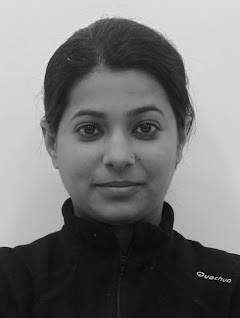Beat
I cover a little bit of everything, including business, everyday news stories and social issues.
One Shot

“After the rape of a student in New Delhi, I completed a series of portraits of women, asking them how they felt about their personal safety. Sheetal was one of my subjects and she told me: ‘something which needs to be changed is not my working hours or my clothes but the mentality of the men in this city’. The picture is important to me because while everyone was instructing women not to go out of the house, this woman was really moving forward into society. That attracted me a lot.”
Profile
We never had a camera in my house, and my father used to have to borrow one from my aunt. But I remember that I always appreciated pictures - I would cut out images from magazines and newspapers and put them on the walls of my room.
I went through formal training in photography at university and learnt the technical aspects of it there. The finer points, like aesthetics, came from working with experienced photographers and looking at pictures by other people.
My first assignment was to shoot a farmers' protest and what I saw blew me away. There was a huge horde of demonstrators who were all men and the people covering the incident were mostly men too. I was distracted by the attention I was getting out there – there were dozens of mobile phone cameras filming me – but finally I managed to get through. I stood there waiting until they got bored, which eventually they did, and managed to get images at the end of the whole show.
I think that the story which left the biggest mark on me would be a project I shot after the gang rape of a student in New Delhi. There were massive protests across the country, and everybody was out photographing them, but being female myself and being in the place where it was all happening, something within me was shouting that this was not just about one woman. I wanted to find out about others and their everyday struggles. In the end, I went out and took pictures of 12 to 13 women and asked them how they felt about the city. I got a good response and I feel strongly about the story.
I enjoy covering topics related to humanitarian themes. I like getting into people's lives, getting to know them and telling their stories through my photography.
Since I’ve been working with Reuters I’ve learnt a lot of discipline. I know I have to be patient and calm and able to handle any situation. I’ve also learnt to complete a task with total concentration, knowing that I have a certain deadline and I have to fully concentrate on the story at hand.
I don’t really think of any particular audience when I take pictures. A photographer wants everyone to be affected by his or her images and wants to reach out to as many people as possible.
